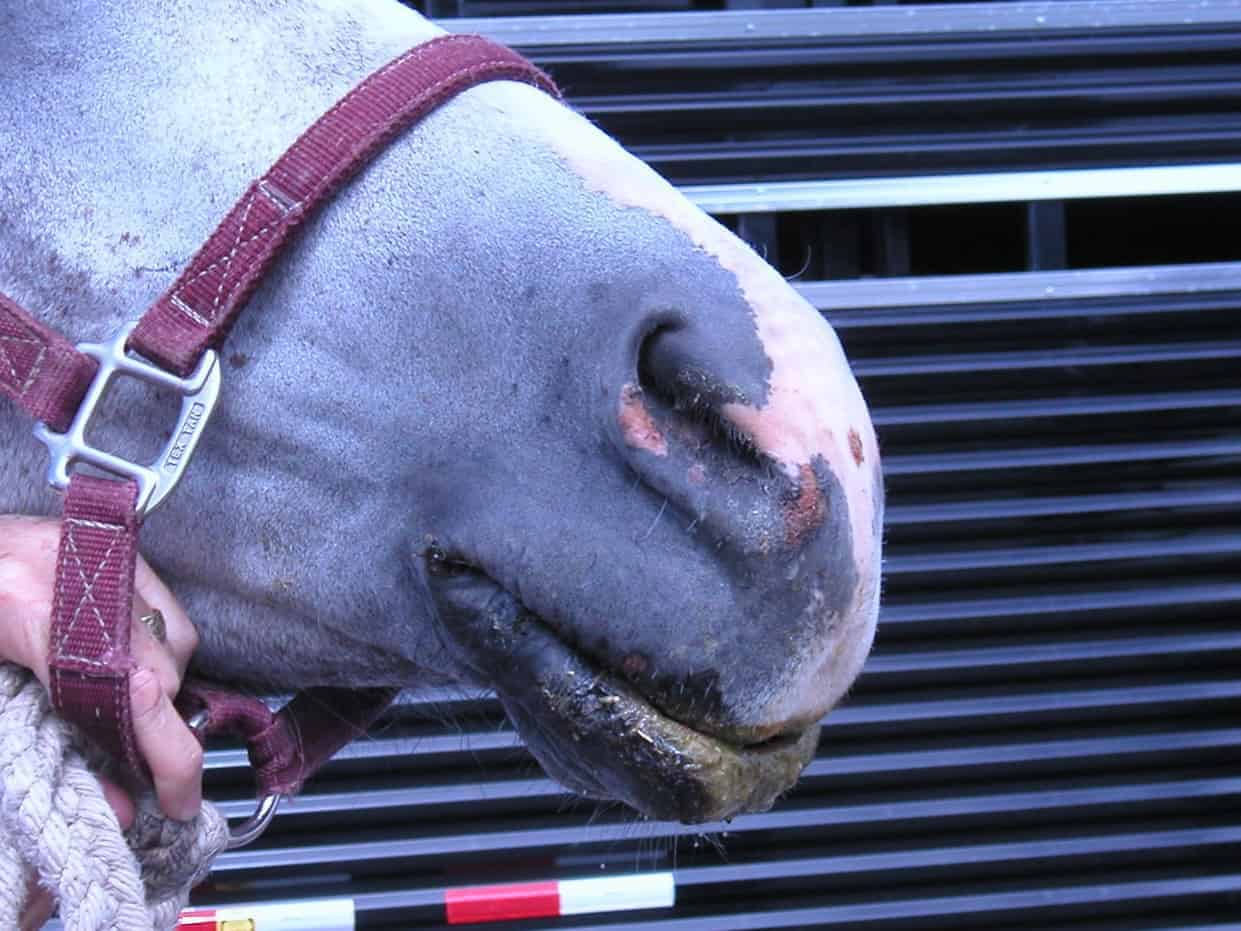After a Two-Week Lull, VSV Confirmed in Missouri

Following two weeks of USDA Animal and Plant Health Inspection Services (APHIS) Situation Reports with no new confirmed vesicular stomatitis virus (VSV) cases and all previously positive premises released from quarantine, APHIS confirmed one new positive equine premises, in Texas County, Missouri, in its Oct. 8 report.
Premises with confirmed positive and suspect cases are quarantined and monitored by veterinarians for at least 14 days from the onset of lesions in the last animal affected.
Once APHIS confirms a county as VSV-positive, new equine premises in that county that show clinical signs of VSV aren’t required to be tested. Instead, that premises is quarantined and classified as suspect. Also classified as suspect are premises where animals don’t meet the definition of a confirmed case, but where diagnostic evidence of a recent VSV infection exists
Create a free account with TheHorse.com to view this content.
TheHorse.com is home to thousands of free articles about horse health care. In order to access some of our exclusive free content, you must be signed into TheHorse.com.
Start your free account today!
Already have an account?
and continue reading.
Written by:
Diane E. Rice
Related Articles
Stay on top of the most recent Horse Health news with















